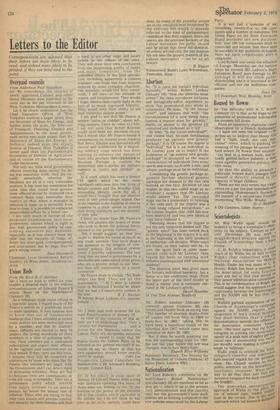Abortion
Sir: "It is upon the foetus's individual humanity," writes Robert Lindsay (January 19), "that the abortion issue pivots." He then introduces tortuous and biologically-naive arguments to show that personhood (sic) arises at conception. He asks, "Is the foetus alive?", and answers this with: "the chromosomes of a new being have formed a master plan for growth." Hardly an answer to the question (ill conceived and irrelevant as it is)?
He asks, "Is the foetus individual?", and claims that, because fertilisation produces "an entirely new genetic package," it is. Of course the zygote is 'individual,' but is it an individual as Mr Lindsay goes on to imply? If the possession of "an entirely new genetic package" is accepted as the major characteristic of individuals then every sperm and ovum, each with a new, and unique, package must be an individual.
Considering the genetic package argument further: identical genetic packages are donated to the two cells tormed at the first division of the zygote. Is this two-celled stage an individual? I suspect that Mr Lindsay would answer Yes. The two-celled stage can be a preliminary to twinning if the cells part. If the zygote was a "child being refused recognition," as Mr Lindsay implies, that child has now been destroyed and two new identical ones have replaced it.
Twinning shows that the zygote is not the only totipotent human cell. The "genetic spool" has been turned back to the beginning in the zygote; it is still at the beginning in the early products of embryonic cell division. When ways are found, as they surely will be, to turn the spool back in other mammalian cells will Mr Lindsay then regard his body as teeming with hitherto unrecognised and unwanted children?
The abortion issue may pivot upon the foetus's individual humanity, but a foetus is a late embryonic stage (from the latter part of the third month in man): a matter that is curiously obscured in Mr Lindsay's article.
David Ham bier 14 Yew Tree Avenue, Bradford


































 Previous page
Previous page